Daniel Andrews: ‘There are no adverse findings that relate to me. That’s just a fact.’
Daniel Andrews is refusing to address one finding from Victoria’s anti-corruption watchdog and insists he has no relationship with disgraced developer John Woodman.
Victoria
Don't miss out on the headlines from Victoria. Followed categories will be added to My News.
Daniel Andrews says he can’t recall when he first met John Woodman, but insists he has no relationship with the disgraced developer and has “behaved appropriately at all times”.
The Premier also refused to address a finding by IBAC that he asked to express regret to Mr Woodman after the government deferred a land rezoning decision that impacted the businessman’s interests.
But Mr Andrews rejected a section of the IBAC report in which he allegedly referred to a journalist as an “arsehole”.
“I’m not in the habit of referring to journalists or anybody in those terms, and that’s what I told IBAC,” he said.
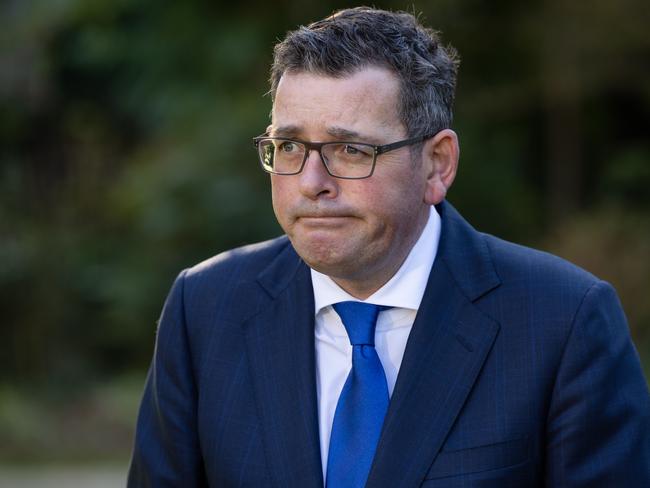
According to Mr Woodman’s lobbyist, Phil Staindl, “the Premier praised Mr Woodman’s contribution to the Labor Party and lamented the fact that Mr Woodman was being pursued with allegations of corruption by a journalist who was an ‘arsehole’”.
Mr Staindl said the Premier wanted to apologise to Mr Woodman for deferring a decision on Cranbourne West land rezoning because of those allegations, and that he gave Mr Andrews the developer’s phone number “as the Premier said he would like to call Mr Woodman”.
Asked on Thursday what he made of IBAC’s decision to accept Mr Staindl’s evidence over his own, Mr Andrews said: “That’s a matter for them.”
“If you look in the report, it has a list of people for whom there is adverse commentary. My name is not on that list,” he added.
“If you look at the recommendations and findings, there are no adverse findings that relate to me. That’s just a fact.
“I’m not going to be here, though, dissecting the whole thing.”
Mr Andrews said he doesn’t remember when he first met Mr Woodman but said: “I can tell you I hadn’t seen him for a long time.”
In an interview last year, Mr Woodman said he had first met with Mr Andrews when he had “pimples on his face”.
Asked if that was an accurate recollection, Mr Andrews said: “I don’t know what my complexion looked like at the time, or when it was.”
Mr Andrews added that he is uncertain about whether he’s ever had Mr Woodman’s number, but doesn’t believe he had a phone conversation with the developer after meeting at a fundraiser.
He said he wasn’t concerned about the perception of being seen to not be able to remember key details when being probed by investigative bodies.
“I have thousands of meetings, many of them are with you guys. Do you remember every word you’ve said to me? Probably not,” he said.
The Premier also defended his right as a witness to be probed by IBAC in private.
“Public hearings are held where there’s a reasonable suspicion that the person who’s being interviewed has engaged in corrupt conduct,” he said.
“I have never been examined in public and you ought to infer from that, it’s not even a matter of inference, it’s a matter of fact, because I’ve not done anything wrong.
“Being questioned is not the same as having done anything wrong.”
IBAC to refer evidence to DPP
Victoria’s anti-corruption watchdog will refer evidence from its scathing report into the tactics of developer John Woodman and his associates to the Director of Public Prosecutions, paving the way for potential charges over the scandal.
In the Operation Sandon report released Thursday, the Independent Broad-based Anti-Corruption Commission highlighted a range of worrying behaviours, including payments of two Casey councillors who in return lobbied for planning decisions that suited Mr Woodman’s business interests.
But it did not outline charges to be laid, prompting questions about who will be punished.
When asked about this, Acting Commissioner Stephen Farrow said there was now a process where they would provide information to the DPP for consideration about whether the evidence was enough to warrant charges.
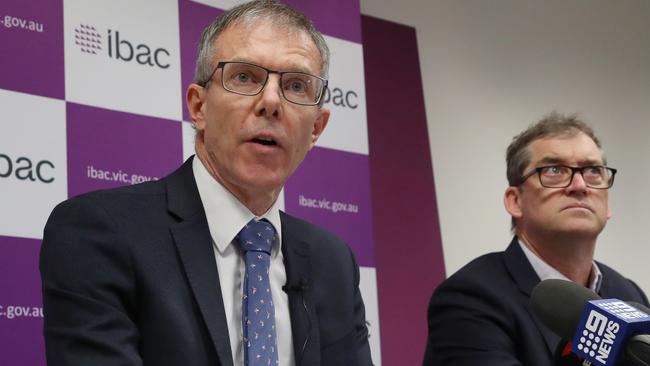
“Where we’ve got evidence that’s admissible in court of criminal offending we will provide that,” he said.
“Our process is that we provide a breadth of evidence to the prosecution, they’ll make an independent prosecutorial decision.
“We’re investigators, they make the decisions for prosecutions.
“This investigation has had a complex timeline. But the advice I have is that that will be happening very quickly.”
Deputy IBAC Commissioner David Wolf said the report and its recommendations were a “pivotal moment for local government”.
“What is clear is that the conduct of the individual councillors severely damaged the standing of Casey Council with their local community.
“But moreso, this unambiguous breach of public trust had a reputational ripple effect for councils across the entire state with conduct that epitomised what communities loathe in their elected officials.
“I have no doubt that what is detailed in this report was desperately disappointing for the hardworking staff of Casey Council and for all those across the sector who act with integrity and the public interest.
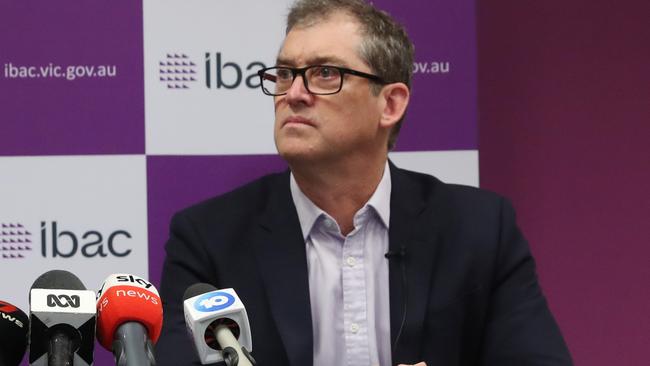
Mr Wolf said the report detailed how the council process could be manipulated and disregarded.
But he said it also demonstrated how easily business interests could gain access to those in power at multiple levels.
“This investigation showed the extent to which a property developer and consultants such as Mr Woodman can invest across the political spectrum to buy access to decision makers, both local and state government levels,” Mr Wolf said.
“It also showed the ways in which lobbyists can be used to target councillors, members of parliament, ministers, advisors and electoral officers.
Mr Wolf said IBAC’s recommendations to collect charges on massive windfalls from rezoning and to take major planning controls away from councillors were to minimise the risk of similar scandals.
When asked if communities would be losing their voice if these changes were made, he said it was important these elected councillors still have a voice in planning decisions even if they were not the ultimate decision maker.
“What this investigation showed was the complexity and the technical capability to deal with planning matters is beyond councils,” Mr Wolf said.
“The councils themselves acknowledge that.
“It also exposed the enormous amount of time that councils are spending on planning matters that they don’t have the capability to deal with.”
Mr Wolf said the major task force IBAC recommended be established by the Premier would determine how the current system can be improved to make better decisions.
“These recommendations mirror what’s in place in many other jurisdictions around Australia and it really is aimed at delivering better planning outcomes for the entire community,” he said.
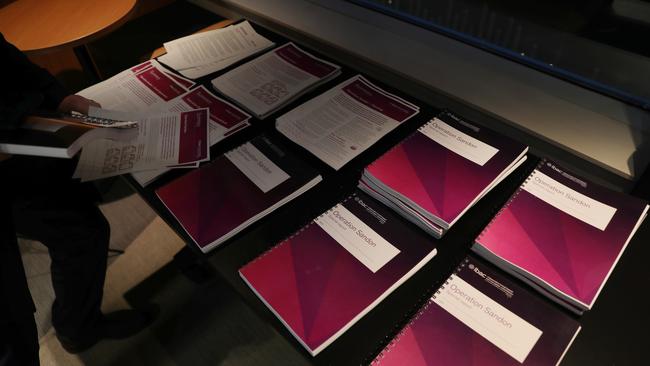
Pesutto says Premier never takes responsibility
Opposition Leader John Pesutto said the report shone a light on a “culture of secrecy, cover-ups, cosy relationships, dodgy payments and favours for mates”.
Mr Pesutto said while the Coalition would look at each of IBAC’s recommendations, the Premier could not be trusted to take over planning responsibility from local councils.
“Planning reform cannot involve giving more power to a Premier whose evidence was rejected by IBAC when it came down to clear matters,” he said.
“We cannot trust the Premier because he never takes responsibility, and he should not be given more responsibilities.”
The Liberal Party’s own dealings with Mr Woodman were also probed in the investigation, with former Liberal candidate Geoff Ablett one of the biggest beneficiaries from the developer.
Asked if Victorians deserved an apology from the opposition, Mr Pesutto said it was fitting that Mr Ablett was no longer a Liberal Party member.
“We condemn wrongful behaviour no matter who undertakes the wrongful behaviour,” he said.
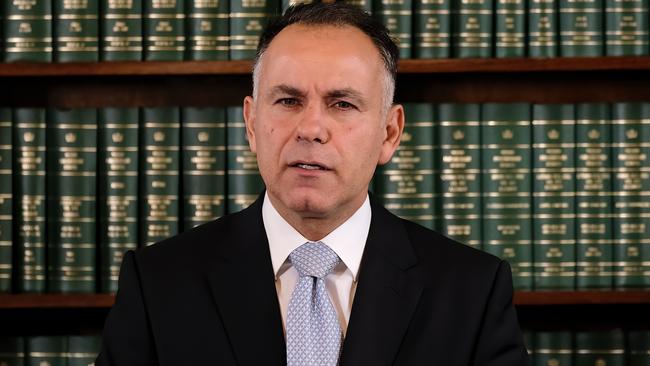
Andrews to back key IBAC recommendation
In the wake of the IBAC report, Daniel Andrews flagged he would support a key recommendation to strip local councils of their powers to make significant planning decisions in the wake of a scathing IBAC report.
In a statement responding to the release of Operation Sandon, the Premier on Thursday said the government will consider each of IBAC’s 34 recommendations and respond in due course.
But he said it is the “clear position of the government that the role of local councils in significant planning decisions should be reduced”.
“We will have to say on this matter,” he said.
“What went on at the City of Casey was completely unacceptable and the government sacked the council in 2020.
“However, it is clear from the report that more work must be done.”
Mr Andrews said Victoria already boasts the toughest political donation laws in the nation.
“Our reforms have drastically reduced the size of donations, and make sure Victorians know who makes and receives them in real time,” he said.
“These reforms are currently the subject of a legislated periodic review and the government looks forward to receiving that report.”
The Premier is due to hold a media conference on Thursday afternoon.
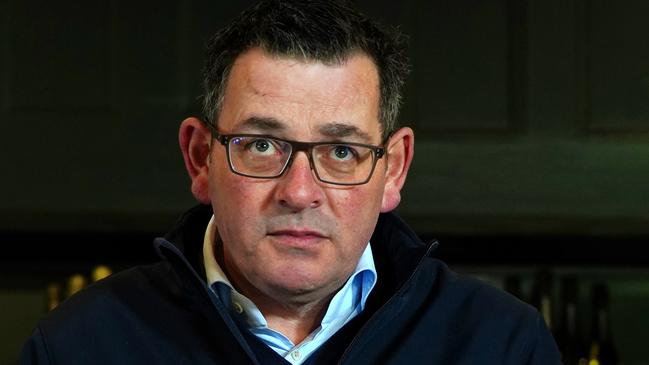
Political figures react to IBAC report
Cranbourne MP Pauline Richards refused to answer questions as she left a Labor caucus meeting at a golf course on the Mornington Peninsula just hours after the report’s release.
Ms Richards was chaperoned out of the Moonah Links Golf Course by Energy Minister Lily D’Ambrosio and Health Minister Mary-Anne Thomas on Thursday.
The Labor MP was quick to jump into the passenger seat as a golf club staffer pulled her car up to the front door in an effort to dodge the media.
Daniel Andrews also left the resort shortly after.
Ms Richards is the only sitting MP that IBAC made adverse comments against in its report. But the watchdog ultimately said it had made no adverse findings against her.
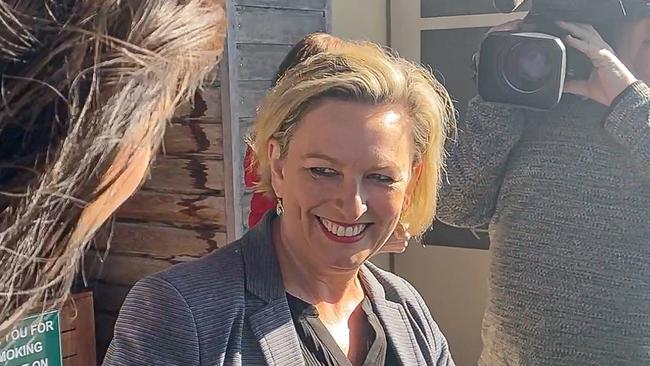
She admitted to IBAC she should have been more circumspect with Mr Woodman but denied that a condition of Mr Woodman’s donation was to pledge support for Amendment C219.
In a statement earlier on Thursday, Ms Richards said: “I am pleased that IBAC’s report has confirmed I did not make any representations on behalf of Mr Woodman, nor did I approach the Minister for Planning or his office — as I have said all along”.
“IBAC also confirms I unequivocally attempted to let Mr Woodman know I would not be advancing the matter, and did not agree to any involvement in doing so with the minister or his office,” she added.
“I look forward to continuing to represent Cranbourne, a community which I love and who have placed their trust in me, to the very best of my ability.”
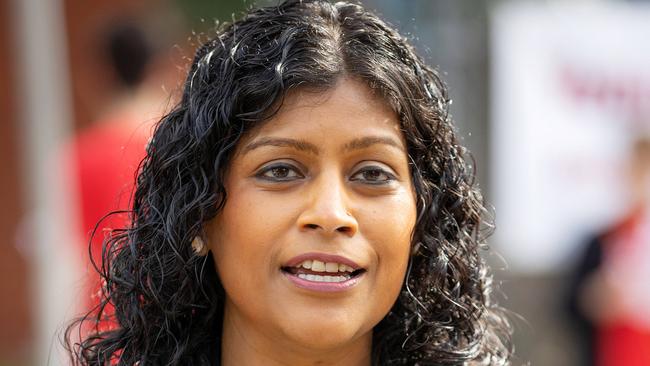
Victorian Greens leader Samantha Ratnam said the government’s failure to strengthen its lobbying laws made findings of corruption “utterly predictable and almost inevitable”.
The Greens have called on the government to legislate codes of conduct for Ministers and lobbyists, make ministerial diaries public in line with laws in NSW and Queensland, ban political donations from the property industry and apply the state’s donation cap laws to local government.
“It’s no surprise that we have planning dysfunction when government MPs and Ministers spend more time speaking to wealthy property developers for donations, than housing experts and renters,” Dr Ratnam said.
“If the Victorian Labor government is going to remove planning powers from councils without strengthening the state’s integrity laws, it will just be shifting corruption to state government MPs and Ministers.”
Victorian Greens integrity spokesman Tim Read said while other states had continuously strengthened their lobbyist laws, the Andrews government “continued to foster an insular and opaque culture of lobbying politicians resembling an old boys’ club”.
“It shouldn’t take four IBAC reports, and close to a decade for a government to strengthen lobbying and anti-corruption laws when other states do it immediately,” Dr Read said.
“The Victorian Greens are the only party fighting for the Labor and Liberal parties to introduce stronger political integrity laws.”
‘All councils and councillors are on notice’
Victorian residents’ lobby group Council Watch said the Operation Sandon report had exposed just the “tip of the iceberg of corrupt council culture’’.
“One of the most corrupt areas of local councils has finally been exposed,” Council Watch spokesman Dean Hurlston said.
“All councils and councillors are on notice; we will get the truth out at all costs,” he said.
Mr Hurlston said councils should be stripped of planning powers on large projects.
Both sides of politics had failed to address the issues that emerged from the Local Government Act reforms in 2020, he said.
“These reforms reduced transparency and accountability in local government.
“This IBAC investigation is a clear example of why this was a terrible idea.”
“It’s time for councils to be dramatically overhauled and investigated. The culture and
behaviours of councils must dramatically change.’’
He said Council Watch supported all the recommendations made by IBAC.
“We now want the state government to get this done and fast,” Mr Hurlston said.




